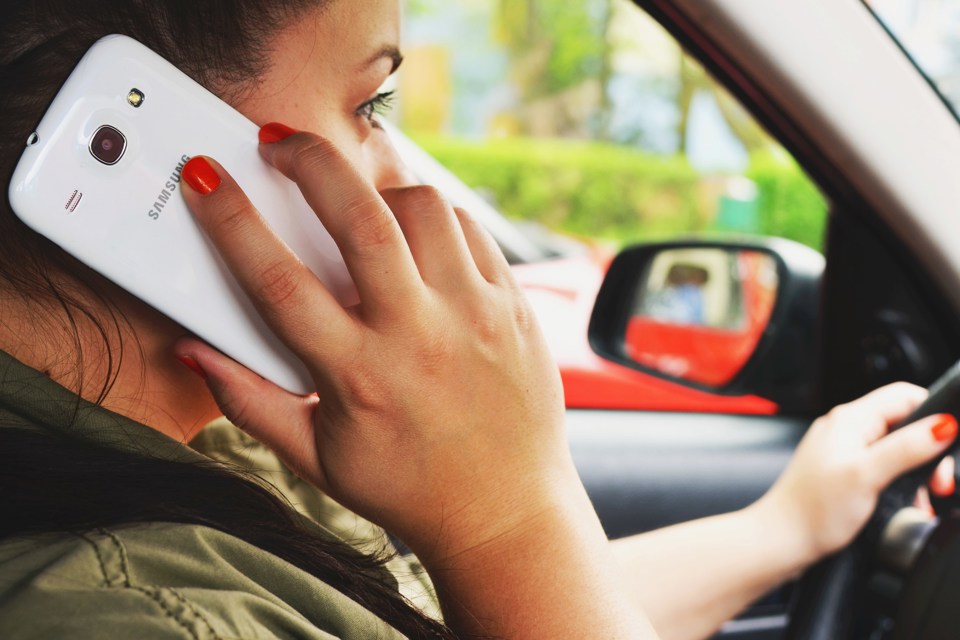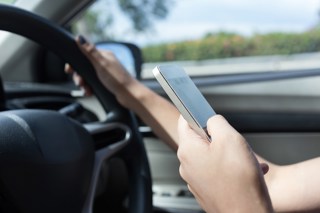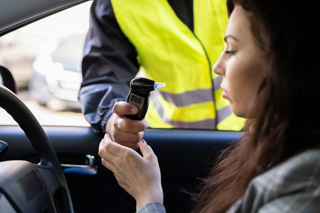A combination of fewer traffic police, increased fines and improved connectivity in new vehicles is likely behind a 30% drop in motorists being charged with using their mobile phone while at the wheel.
The latest statistics for England and Wales, from the Ministry of Justice (MoJ), show the number of offences dropped from 13,000 in 2016 to 9,000 in 2017.
However, the decline doesn’t tally with the sentiment of UK drivers expressed in numerous surveys, where a significant minority admit to regularly using their phone while driving.
In a recent survey of 2,000 drivers carried out by SmartWitness, one in five said they are still prepared to flout the law.
John Pryor, ACFO chairman, told Fleet News that if the numbers from the MoJ are correct, a reduction in mobile phone offences is a development that should be applauded.
However, he said: “The reduction is probably due to a number of factors.
“Fewer traffic police undoubtedly means there is less chance of being caught using a handheld mobile phone. It is also true that more vehicles have Bluetooth and so increased connectivity is also playing a part; similarly the increase in penalties, if caught, may also be influencing a reduction in handheld mobile phone use.”
The total number of specialist roads officers across all 43 forces in the UK has fallen from 5,634 in 2010 to 4,934 in 2017, according to data from the Home Office.
Pryor says he regularly sees drivers using their phone. “The message that they are illegal to use when driving is not completely getting through,” he said.
“Maybe once all vehicles are ‘connected’ will be the time when drivers using handheld mobile phones while motoring will be confined to history.”
Fleet operators employ a range of different policies to manage mobile phone use, including the banning of hands-free devices. However, some argue that it is essential drivers are contactable while on the road.
From March 1, 2017, penalties for drivers using a mobile handset were doubled to a £200 fine and six penalty points, giving the UK the highest level of fine for the offence in Europe, alongside the Netherlands.
Yet, a populus survey by The AA of 18,000 drivers in April, reported that 98% had seen a driver using a mobile at the wheel, 48% said they see this on a regular occurrence and 99% said using a mobile at the wheel is dangerous.
“The trouble is mobile phone offences can be difficult to be picked up by the police,” said a spokesman for The AA. “If it’s happened after a crash, they can check your mobile phone usage, but, other than catching you in the act, it’s difficult.
“There has been a decline in highways policing but, when there is a concentrated effort to crackdown, it comes with a harvest of convictions.”
Neil Greig, IAM Roadsmart policy and research director, would like to think that drivers have got safer and the police more active, but admitted there is conflicting evidence either way.
He said: “Road deaths are flatlining, suggesting that our roads are not improving at the pace we have got used to, and traffic police numbers are in decline.
“In our view, ever-increasing penalties have little effect unless they are directly connected to an increased fear of being caught.”
Research from the RAC shows that, while there has been a “slight reduction” in drivers that admit to using a mobile at the wheel, it estimates there are still around nine million motorists routinely flouting the law in the UK.
“Eye-witness accounts from our members and colleagues also suggests that illegal phone use remains a serious problem in the UK, which is why we fear the drop in prosecutions is likely to be just the result of fewer drivers being caught in the first place,” said an RAC spokesman.
“The fact a police officer has to observe someone using a handheld phone at the wheel in order to convict them of the offence makes it an extremely labour-intensive task and one made all the more difficult with a sharp reduction in the number of dedicated roads policing officers.”
However, he added: “We believe police are doing what they can to enforce the law under difficult circumstances.”






















Gordy - 21/06/2018 11:34
I don’t believe mobile phone use behind the wheel is reducing as I regularly see people offending every time I commute. It’s almost obvious - one hand or both hands off the wheel, hand down the side of the driver, driver staring at phone for seconds at a time, texting, emailing, phoning. Every one a murder or death waiting to happen. Custodial should be mandatory. It’s very easy to work out who on a motorway. Text or phone or email sent on mobile phone network pinpoints point of transmission on mobile network at exact time. Then look at carriageway cameras. No passenger in vehicle? Must be the driver. Don’t need traffic officers for this although more traffic officers should be a priority because they are experts at spotting all offences, most of which are going unnoticed nowadays. More traffic officers = less road deaths. What do we want?